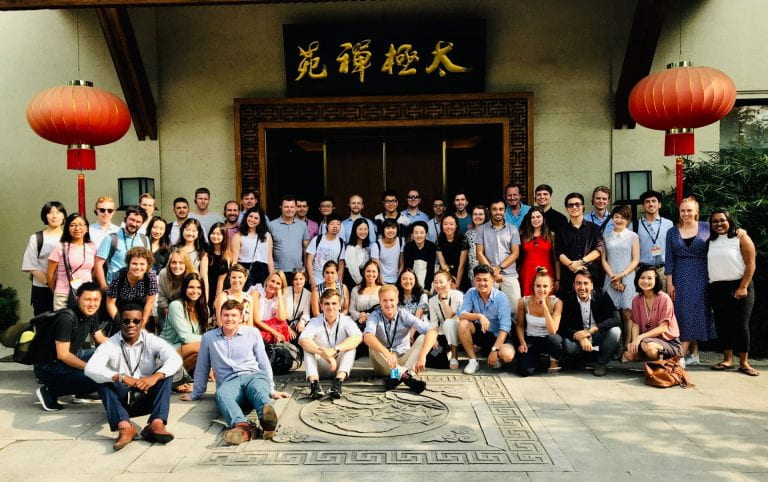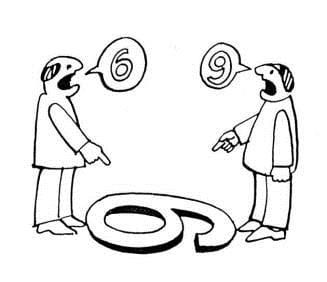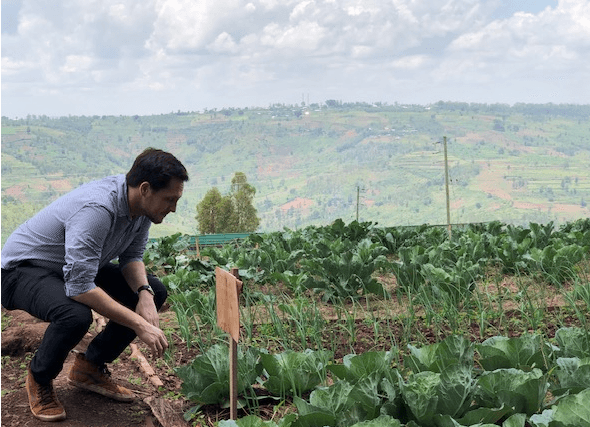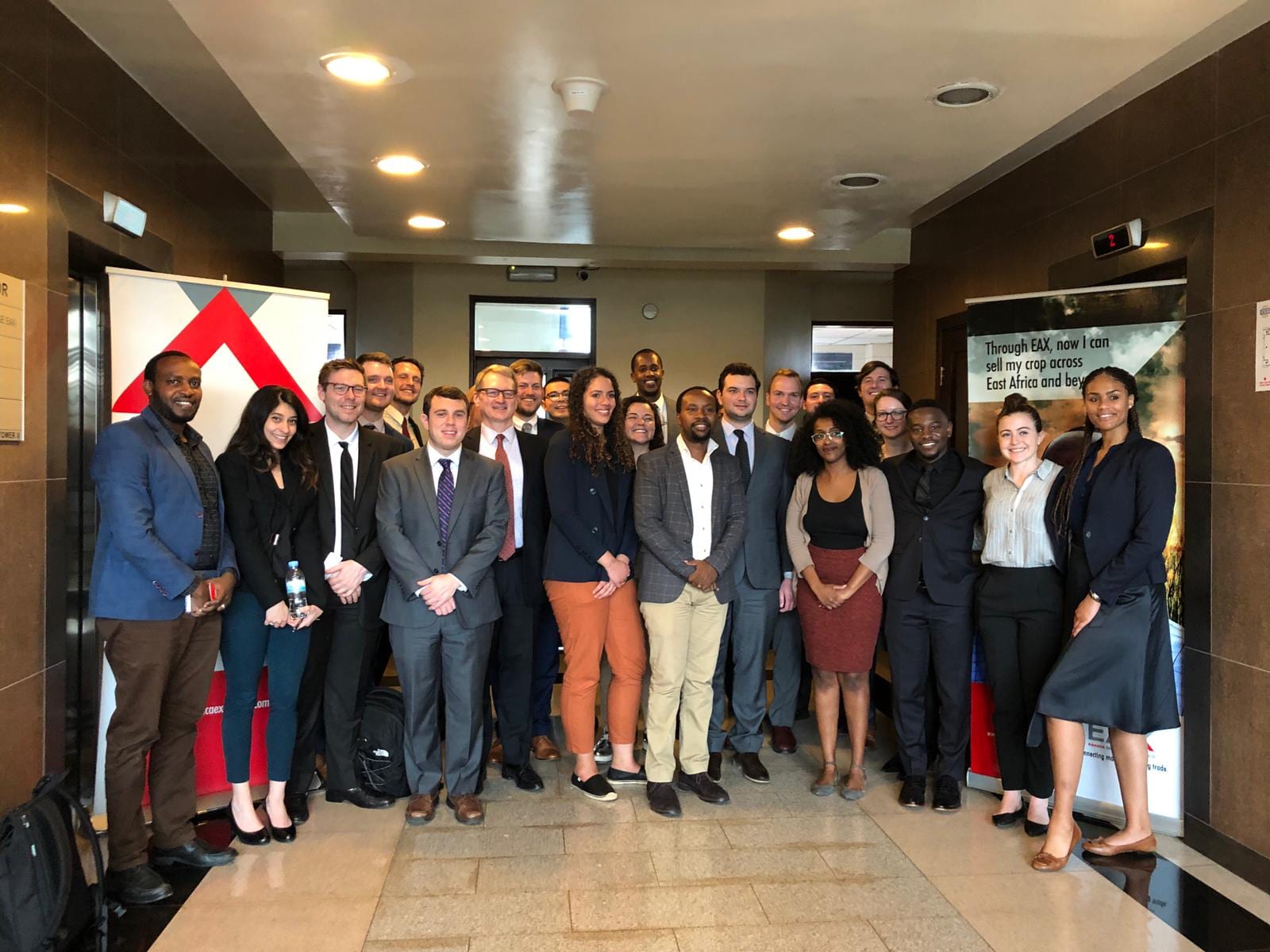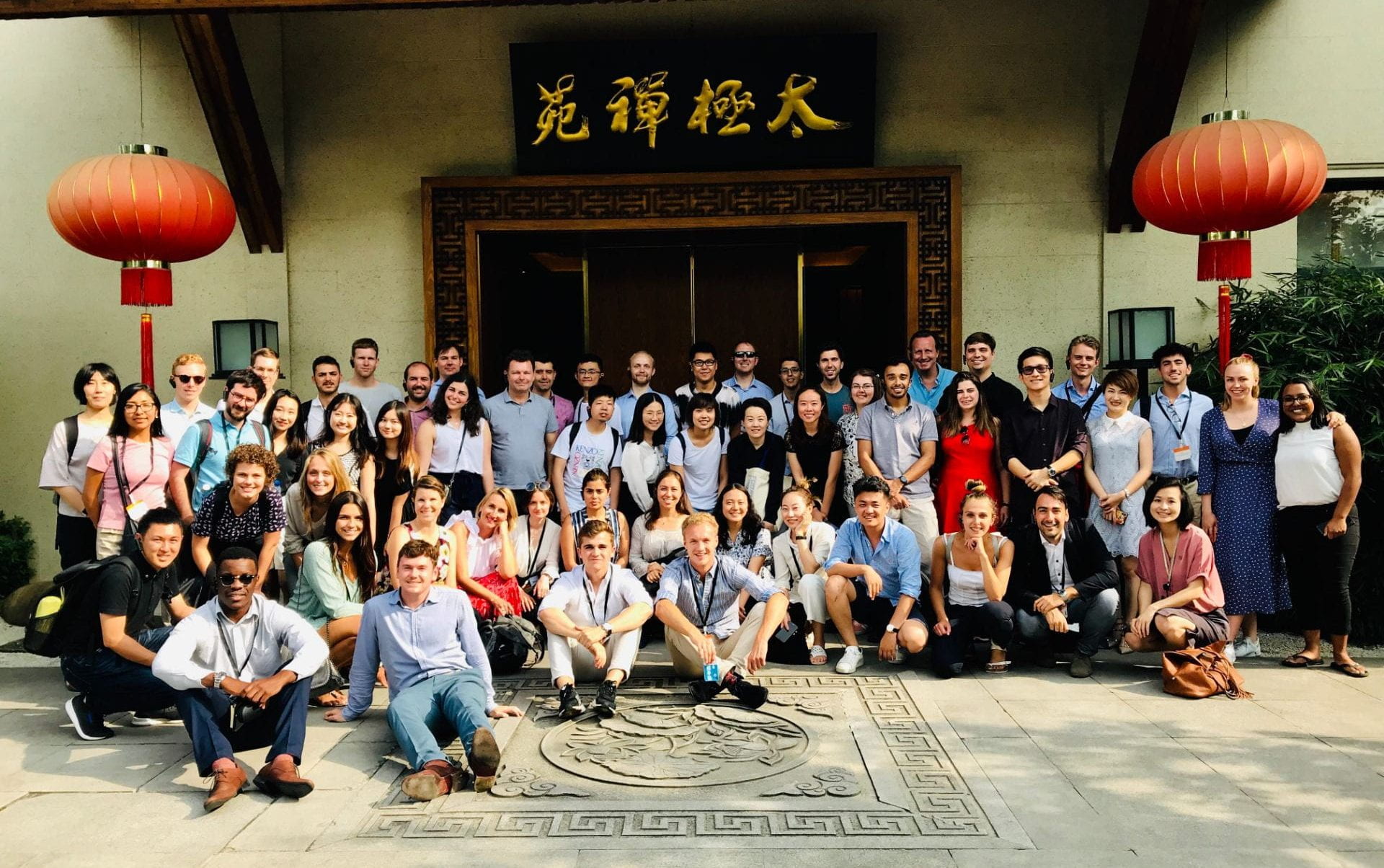
Blog Post by Brandi Cook, MBA
Tomorrow marks a week into my short term study abroad to Shanghai, China with the Fudan University Beyond Program, and what a week it’s been! We are a very diverse cohort of 54 people from 28 different countries, comprised of education backgrounds from undergraduate up through lifelong learners. The theme of the program is Innovation, eCommerce, and Entrepreneurship, and Fudan School of Management has put on so far an incredibly interesting lecture series and four great company visits! Over the last three days, we were granted an amazing insider opportunity to visit one of the campuses of Tencent (the creators of WeChat) as well as the headquarters of Alibaba. These two megalith companies presented fascinating case studies because they are very different in their approach. Alibaba is the world’s largest retailer and eCommerce company, and WeChat is a suite of apps inside one giant app, and it can pretty much do anything you need in China (and I do mean anything). But these companies are so much more than just these two products! With the access granted through the Fudan program, we were able to learn about their corporate culture, philosophy, and values, see how they went from startup companies to basically ruling the world, and discuss business strategy for their futures. Even though the reach of these companies is not quite as extensive inside the US yet, I believe they are coming soon. And with all of their offerings, they will each give their western counterparts (ahem, Amazon and Facebook for starters) a run for their money. It was very cool to see how these companies foster innovation, conduct operations, and create magic!
And outside of class time, Shanghai itself is a sight to see. There is so much to do and see here, and the food!!! I had no idea there were something like 28 different types of Chinese cuisine, and believe me, I’m determined to try all of it!!! While I won’t lie and say it’s been easy to get around, as the only two words I know in Mandarin are “hello” and “thank you,” in general it’s been workable, and it’s certainly been fun figuring it out. There are many familiar things about Shanghai compared to other places I’ve been, but China seems to give things a flair all of its own! Tomorrow my new friend and I are going to take the speed train to Beijing for the weekend, with plans to hike the Great Wall on Saturday- and I am so excited to experience this icon of history. So please send us good vibes that we only get lost a few times, and that we maintain our sense of humor when it inevitably happens!
Expectations are always challenged by the realities of a situation, and that can be good, bad, or both. Lucky for me, Shanghai has, so far, been mostly good.
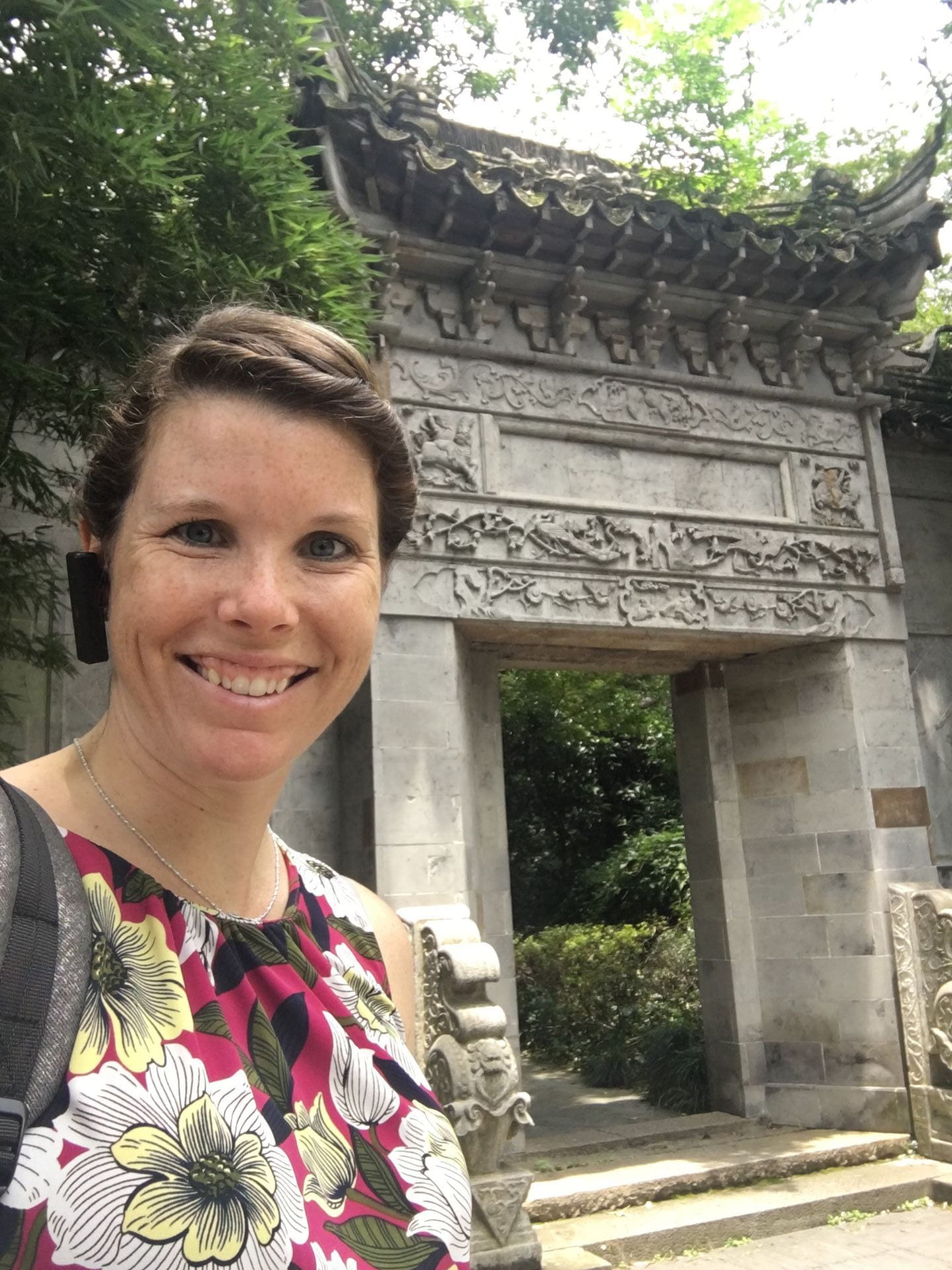
Featured Photo: Fudan University Beyonders at Taichi Zhenyuan
Secondary Photo: Brandi Cook outside Hudan University in Hangzhou, China

